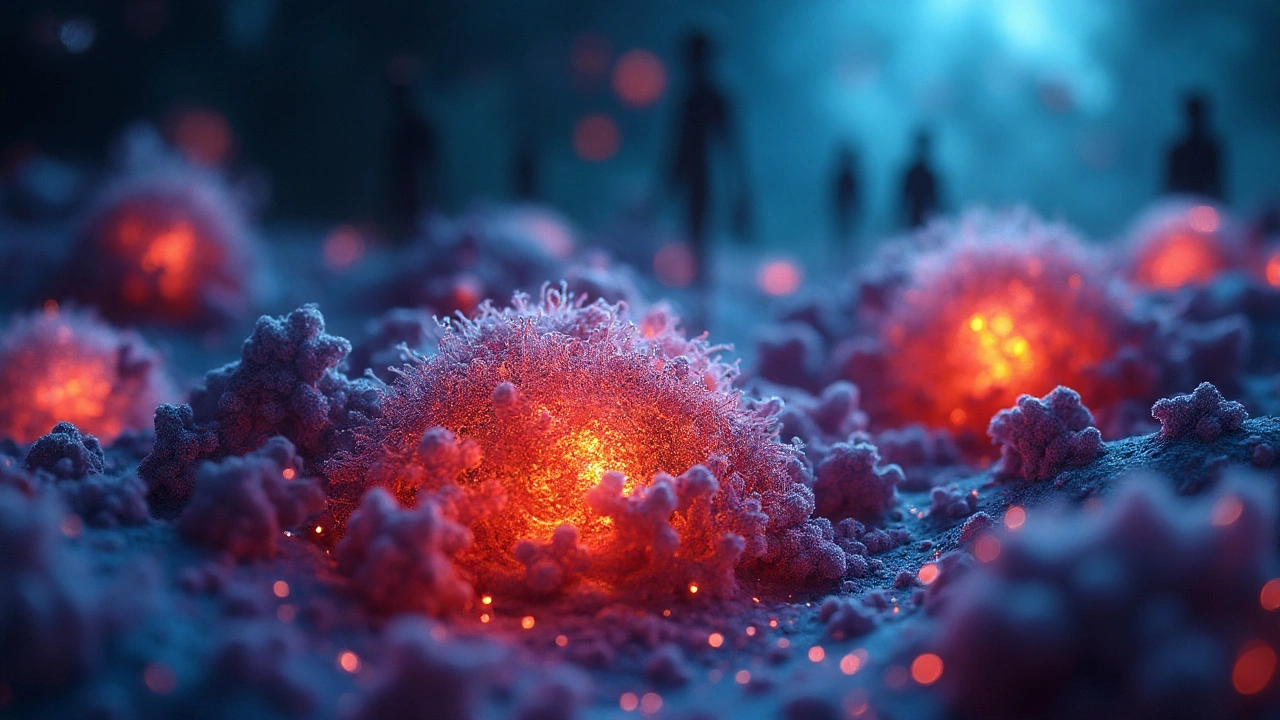Carcinoma – A Straightforward Look at This Common Cancer
When you hear the word “carcinoma,” it can feel scary. In plain terms, carcinoma is a cancer that starts in the skin or tissues that line organs. Knowing the basics helps you catch it early and act fast.
What Kinds of Carcinoma Are There?
Carcinomas come in a few flavors. The most talked‑about are squamous cell carcinoma (skin), adenocarcinoma (glands like the breast or prostate), and basal cell carcinoma (also skin). Each one grows in a different kind of cell, but they all share the ability to spread if not treated.
Where Does It Usually Show Up?
Typical spots include the skin, lungs, breast, colon, and prostate. That’s why doctors focus on screenings for these areas. If you notice a lingering cough, a lump in the breast, or a change in a skin spot, it’s worth getting it checked.
Symptoms can be subtle. A new mole that changes color or size, unexplained weight loss, persistent pain, or bleeding where it shouldn’t happen are red flags. Trust your gut—if something feels off, schedule an appointment.
Diagnosis starts with a simple exam, then a biopsy where a tiny tissue sample is examined under a microscope. Imaging like X‑rays, CT scans, or MRIs helps doctors see how far the cancer has spread.
Treatment options depend on where the carcinoma is and how big it is. Surgery removes the tumor, radiation kills leftover cells, and chemotherapy attacks cancer throughout the body. Newer targeted therapies zero in on specific genetic changes, often with fewer side effects.
You can lower your risk with everyday choices. Stop smoking, limit alcohol, eat plenty of fruits and vegetables, and stay active. Regular screenings—mammograms, colonoscopies, skin checks—catch problems before they grow.
If you get a carcinoma diagnosis, don’t panic. Talk openly with your doctor about the stage, treatment plan, and possible side effects. Ask for a second opinion if you feel unsure, and lean on family, friends, or support groups for emotional help.
Remember, carcinoma is common, but so are success stories. Early detection, smart lifestyle moves, and modern treatments give you a solid chance to beat it. Stay informed, stay proactive, and keep the conversation going with your healthcare team.

How Carcinoma Interacts with Chronic Diseases: Key Links and Prevention Tips
Explore the scientific connections between carcinoma and chronic diseases, uncover shared mechanisms like inflammation and oxidative stress, and learn actionable steps to lower your risk.
Read More